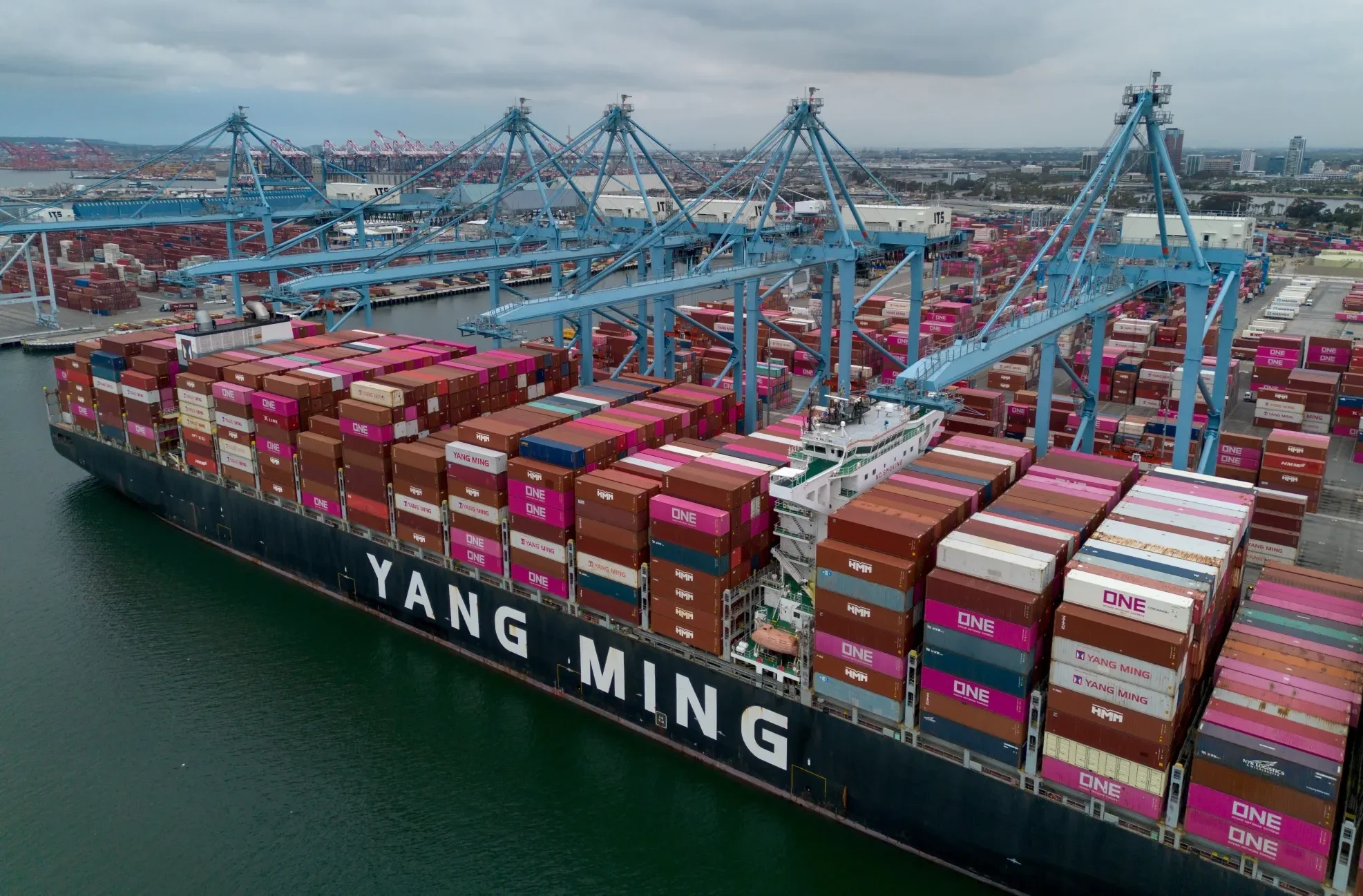Bitmain, Canaan, and MicroBT, three Chinese producers of Bitcoin mining equipment, are relocating their operations to the US in order to avoid high import taxes. These businesses, which together control more than 90% of the world market for mining hardware, are reorganizing their supply chains and setting up production in the United States to stay Bitcoin mining supply chain shift competitive in the face of growing trade tensions.
Shortly after Donald Trump’s victory in the 2024 election hinted at the possibility of higher tariffs on Chinese imports, Bitmain became the first company to test its U.S. production in December.
Following Trump’s so-called “Liberation Day” tariffs on April 2, Canaan established a trial facility in America, while MicroBT announced that it was actively localizing U.S. production to avoid the hefty duties.
Currently, the United States levies a base duty of 10% on imports from the majority of nations, with an extra 20% applied on Chinese goods in particular. This rate may increase much further, particularly for intermediates passing through assembly plants in Southeast Asia.
In order to avoid looming tariff spikes of up to 104%, U.S. miners frantically scrambled to import rigs from China, Southeast Asia, and Thailand prior to transferring production—some using charter flights that cost $2 million to $3.5 million each trip.
These intricate and expensive arrangements highlight how urgent miners are to prevent catastrophic overheads. According to a study by Pat Zhang of WOO X, a 25% tariff alone may reduce U.S. hashrate by up to 25% and drastically reduce machine profit margins from about 37% to 25%, or possibly into single digits at higher tariff rates.
U.S. Production Boosts Miners
 U.S.-based production provides Chinese rig manufacturers with two benefits: instant cost reductions and political protection. Bitmain’s intention to continue dominating the market without interruption is demonstrated by the launch of a U.S. assembly plant in December.
U.S.-based production provides Chinese rig manufacturers with two benefits: instant cost reductions and political protection. Bitmain’s intention to continue dominating the market without interruption is demonstrated by the launch of a U.S. assembly plant in December.
According to Canaan, the United States accounts for over 40% of its income, which is why it is especially eager to investigate localized production.
This tactic, according to analysts, increases “political acceptability” for miners who favor locally made hardware.
In the meantime, MARA Holdings-supported U.S. rig supplier Auradine is advocating to reduce Chinese hegemony and increase domestic hardware options.
Chinese Mining Poses Security Risks
Experts warn that there may be national security risks associated with Chinese involvement in American mining. Due to their access to high-performance CPUs and software and their connection to the electrical grid, Bitcoin mining supply chain shiftmining rigs can create possible backdoor vulnerabilities.
Concerns about espionage were raised by Washington-based Auradine, which pointed out that “hundreds of thousands” of Chinese-built rigs are already connected to the American electricity grid.
Some caution that mining rigs may unintentionally serve as platforms for cyber-espionage, and China’s regulatory duties force local companies to support intelligence efforts. The U.S. mining infrastructure poses a “Trojan Horse” risk, according to Cointelegraph.
Even though they have not been confirmed, firmware backdoors and remote control capabilities are nonetheless believable threats that have been tested in supply chain geopolitical conflicts.
“Shifting U.S. Mining Supply
 For the foreseeable future, American miners will probably continue to depend on Chinese-designed rigs despite the shift to American manufacture, leaving them vulnerable to price shocks and security concerns.
For the foreseeable future, American miners will probably continue to depend on Chinese-designed rigs despite the shift to American manufacture, leaving them vulnerable to price shocks and security concerns.
This change, though, suggests a longer-term change in the sector.
According to WOO X and Blockware Solutions, the domestic viewpoint is shifting as miners look for partners who can deliver rigs and factories within U.S. jurisdiction, creating supply chains that are more reliable and safe.
These tactics’ daylighting is a reflection of a larger trend: supply chain diversification as a means of reducing geopolitical risks. Policymakers are currently debating how to effectively promote local manufacturing without limiting innovation, U.S. miners are facing growing prices and cautious optimism, and Chinese manufacturers are reacting dynamically to geopolitics.
The future of Bitcoin mining in the United States ultimately depends on striking a balance between national security, supply chain independence, and cost competitiveness. A healthier, more resilient ecosystem that still gains from global innovation but is less dependent on a single geopolitical source might be the outcome if it is effective.
Final thoughts

 Beyond merely moving assembly, these Chinese behemoths’ action represents a fundamental shift in the Bitcoin mining supply chain. Localizing final assembly and production in the United States “triggers structural, not surface, changes in Bitcoin’s supply chains,” according to Guang Yang, CTO at Conflux Network, even if they still develop designs and cutting-edge processors in China.
Beyond merely moving assembly, these Chinese behemoths’ action represents a fundamental shift in the Bitcoin mining supply chain. Localizing final assembly and production in the United States “triggers structural, not surface, changes in Bitcoin’s supply chains,” according to Guang Yang, CTO at Conflux Network, even if they still develop designs and cutting-edge processors in China.

